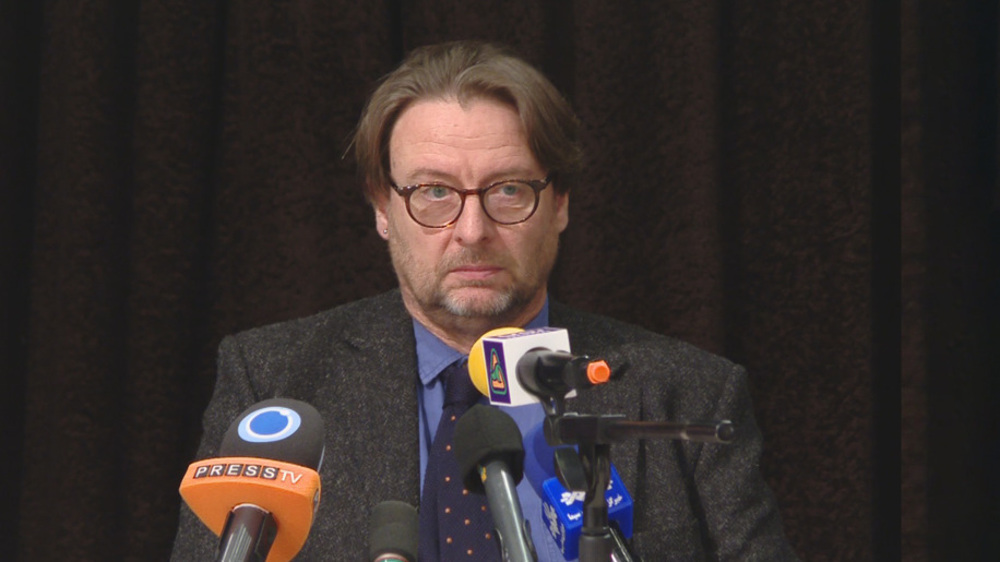‘Major political parties provide no details on planned deficit cuts’
With less than two weeks to go until UK general elections, a new report shows that major political parties are keeping voters in dark over future deficit cuts.

The Institute for Fiscal Studies (IFS), in its latest report, says the election manifestos of Tories, Labour, Lib Dems and SNP provide “no details on plans” to cut the deficit.
IFS is a think tank to promote effective economic and social policies by better understanding how policies affect individuals, families, businesses and the government's finances. The body says that four major parties have “big differences on fiscal plans”.
“There are some big differences between the parties because the Tories want to reduce the deficit primarily by cutting social security and expenditure so it’s all about expenditure cuts. The Labour party wants to increase taxes particularly through the better off through the Mansion tax and those with the hundred and fifty thousand or more of pounds of income. They basically will target the rich a little bit more than the conservatives would”, Keith Pilbeam, Professor of International Economics and Finance at City University told Press TV.
The IFS report comes as election campaigns are on their peak with party leaders and activists attacking each other to divert public opinion. Just a day ago, the two main parties tried to touch on the most pressing economic issues. The Conservatives said a Labour-SNP government would be "deeply unstable" and Labour said the Tories are planning "the biggest cuts.”

The IFS have cited “substantial and almost entirely unspecified spending cuts and tax increases”. "The electorate has a real choice, although it can at best see only the broad outlines of that choice," Carl Emmerson, IFS deputy director was quoted as saying.
Some analysts, however, say parties have different approach on the issue of deficit.
“They [major parties] have all agreed to reduce the fiscal deficit. But the question is the pace with which they will reduce it. So, there are different [approaches]. The Conservatives want to get rid of the deficit by 2017-18 and the other parties are happy to delay that for another couple of years afterwards, basically, the Liberals and Labour party. So, they are taking a much slower approach”, Pilbeam said.
The IFS report shows that the Conservative plans involve "a significantly larger reduction in borrowing and debt than Labour plans". It has also cast doubt on the SNP’s anti-austerity plan, saying the party's spending would be the same as Labour.
'Longer austerity'
IFS say a reduction in borrowing by Labour or SNP means a slower but longer period of austerity. "Labour had been considerably more vague about how much it wants to borrow”, the report said.

The Liberal Democrats are found a bit transparent whose planned spending cuts according to the IFS analysis is more than Labour but less than the Conservatives.
The IFS concludes that the Conservatives would have to cut another £30bn even if the party succeeded in raising £5bn from unspecified tax avoidance. By contrast, the think tank says Labour’s less aggressive deficit-cutting targets would require just £1bn in further spending cuts if it forms the next government achieves raising an extra £7.5bn through tax avoidance measures.
JAS/SKL

HTS in Syria says to recognize Israel by end of 2026

UK police question Holocaust survivor for attending pro-Palestine demo

There will be no escape from justice: Pro-Palestinian UK scholar to Zionist genocidaires
Broadcaster: Israel fabricated Gaza tunnel to stall ceasefire deal
US-South Korea trade tensions
Students camp out at Yale to protest Israeli minister Ben-Gvir’s visit
Over 220 US academic leaders slam Trump crackdown on universities
In Beijing, Araghchi says China, Russia Iran’s strategic partners
Gaza facing 'unprecedented humanitarian catastrophe': Hamas
VIDEO | Poll: Majority of Americans disapprove of Trump’s economic plans
VIDEO | Yemeni ballistic missile triggers sirens in Israeli-occupied lands






 This makes it easy to access the Press TV website
This makes it easy to access the Press TV website